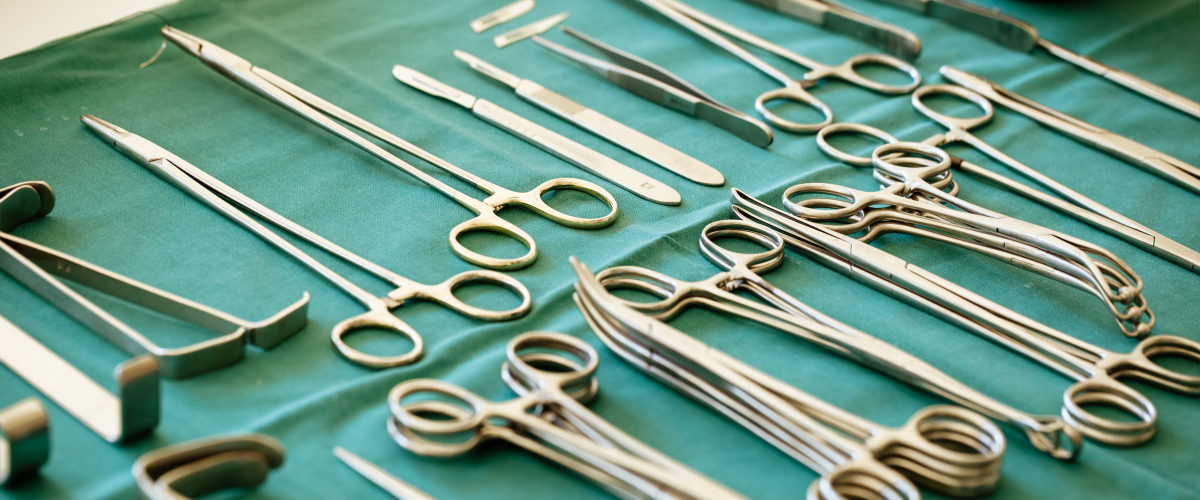Surgical errors include cutting of arteries or nerves, performing the wrong procedures, improperly inserting a medical device, leaving instruments in bodies or even not providing sufficient or any analgesia. Understandably the consequences can be severe and devastating for a patient and their family.
As surgeries pose serious risks, even when performed competently, working out whether a surgical error is due to negligence is often very complicated. Is the error an inherent risk of the surgery or is it because a doctor or nurse did something wrong? Surgical procedures are often completed by teams of surgeons, anesthetists and highly trained nurses, and determining who is exactly at fault and what precisely went wrong is a complicated task. At elringtons, we specialise in medical negligence claims and are experts in health and medical law.
 Take the first step — Call us and get expert legal advice on your rights, no risk or obligation! Take the first step — Call us and get expert legal advice on your rights, no risk or obligation! |
|
|
Surgical error or just a risk of surgery?
Before you have surgery you should be told of the risks of the surgery. Depending on what the precise procedure is, common risks are bleeding, pain and damage to nerves. By agreeing to have the surgery, the law presumes that you have accepted these risks. They are called inherent risks. If an inherent risk of the procedure happens, the law states a doctor or hospital is not at fault. It is just an unfortunate risk of a surgery that has occurred.
A surgical error on the other hand is something which is not an inherent risk of the surgery. It is something that should not occur if the surgeon performed the surgery competently. It is when a surgical error takes place that you may have a medical negligence claim.
Examples of surgical errors
- Operating on the wrong body part
- Accidently cutting an artery or nerve
- Incorrectly inserting a medical device
- Breaking a tooth during a dental extraction
- Failing to give adequate analgesia or sedation
- Failing to monitor a person’s condition during surgery and missing a deterioration or complication
- Leaving a surgical instrument in a patient
Can you sue a doctor for a surgical error?
- Have I got what I expected from the treatment?
- What did my doctor tell me to expect would happen?
- Has the treatment caused me further injury?
- What has the doctor done afterwards?
These are the sorts of questions a lawyer will ask you.
Point 3 above is really important. In medical negligence claims you must show that the doctor caused you further injury. This is called causation. You will not be successful in a claim if you only show that the doctor was negligent, but did not actually cause you any further injury.
What compensation for my losses can I receive?
The types of compensation that may be awarded are:
- Previous lost wages for your time off work;
- If your injuries will affect your ability to work in the future, then your future lost wages;
- The cost of treatment, medications, disability aids and pain relief in the past and future;
- Care and assistance provided to you by family and friends;
- Pain and suffering; and
- Loss of enjoyment of life.
Battery Claims
Sometimes a doctor operates when they didn’t have consent to do the surgery. When this happens a doctor has committed a battery. Not many people are aware of these types of claims. Because of our expertise in medical negligence claims, we are alert to the possibility of running battery claims.
For more information see:
Why should I talk to elringtons about my medical negligence claim?
Medical negligence claims are not just another type of personal injury claim. Just as you would see a specialist for complex health conditions, you should see a specialist for a medical negligence claim. The best way to quickly find out whether you may have a claim is to talk to an expert. We have expertise in health and medical law and for Canberra, Queanbeyan and South East NSW, Matthew Bridger and Thomas Maling are the specialists in medical negligence claims.
We have:
- Inside knowledge about the health industry (one of our lawyers was a Registered Nurse);
- University acquired knowledge about injuries and disease; and
- An understanding of how healthcare should be provided.
To see more about our expertise on medical negligence check out our health and medical law blog. No other firm in Canberra or Queanbeyan matches our expertise in this area.
For more information see our Medical Negligence page or to make an appointment in either our Canberra or Queanbeyan office please do not hesitate to contact Matthew Bridger or Thomas Maling:









